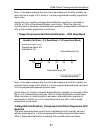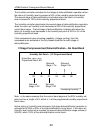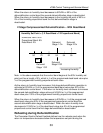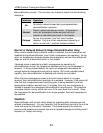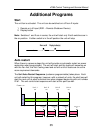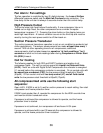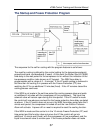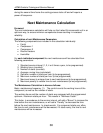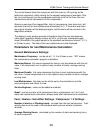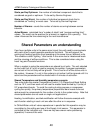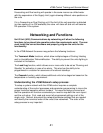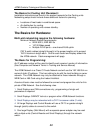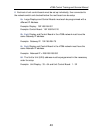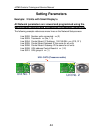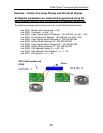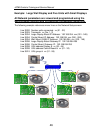
iCOM
Control Training and Service Manual
The control always takes the component with the most on/ off (cycling) as the
reference component, which asking for the nearest maintenance (example: if the
fan runs continuously, but the compressor switches on/off all the time, the next
maintenance will be calculated from the compressor).
Alarms or warnings (like clogged filter, high or low pressure, fans alarm etc.) will
decrease the time to next maintenance immediately to 0. If the alarm was reset,
the original situation will be displayed again, but the alarm will be counted in the
diagnostics window.
The display’s main window provides information about the next maintenance:
a bar graph (graphical display screen) will fill in, as the next maintenance gets
closer (the width of the graph equals to the standard maintenance Interval (1, 2, 4
or 6 times a year). The date of the next maintenance is also displayed.
Parameters for next Maintenance Calculation:
General Maintenance Settings:
Maintenance Frequency: can be set at 1, 2, 4 or 6 times a year. “NO” means
the maintenance calculation program is disabled.
Maximum Bonus: this value increases the time to next maintenance with the set
value, if all components run in optimum way (number of starts, average running
time).
Maximum Penalty: this value decreases the time to next maintenance with the
set value, if some components run in non-optimum way (number of starts, average
running time).
Last Maintenance: this date can be will be set by the calculations and the
service-engineer and others to view.
Service-Engineer: name can be added and edited.
Reset: puts all counters of all components (fans, compressors, ect.) to 0, and
starts new maintenance calculation (always reset after maintenance is completed).
Fans / Heaters / Humidifier Settings / Compressor 1 /2 Settings
Number of starts and Working hours: counted from the last maintenance. Total
working hours can be read in the standard working hours window (customer
window).
Average Working Hours: calculated by the number of starts and working hours
of each component.
39



